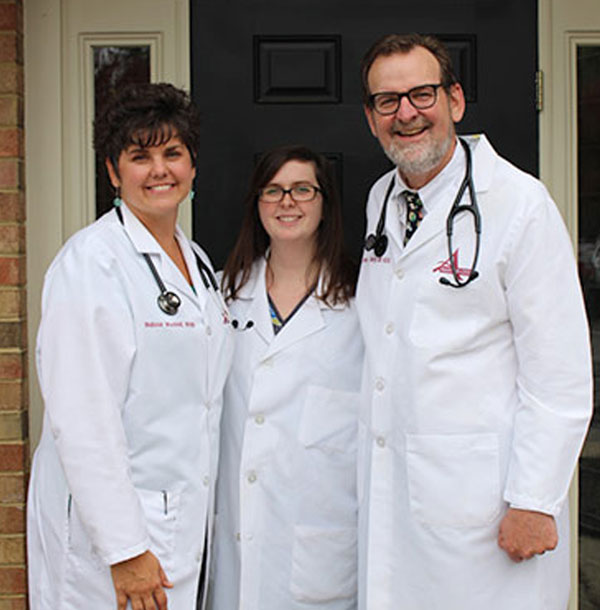Alpha Fetoprotein Test
What is alpha-fetoprotein screening?
Alpha Fetoprotein is a chemical that is present in very high amounts in the developing fetus. Normally, AFP cannot be detected in adults, but during pregnancy a small amount can be measured in the mother’s blood. Measuring AFP in the mother’s blood can be a useful way of detecting certain problems with a pregnancy. In addition to AFP, your blood is also tested for human chorionic gonadotropin (HCG), unconjugated estradiol (uE), and dimeric inhibin-A (DIA).
How is the test performed?
A small amount of blood is taken from your arm between the 15th and 20th weeks of pregnancy. Alpha-fetoprotein levels are highest between 15 and 20 weeks of pregnancy. After this time they slowly decrease. Only one tube of blood is required and there is no special preparation before the sample is drawn.

What conditions does the test find?
A high level of AFP may indicate a problem with the spinal cord, brain, or digestive system. Examples of problems that can cause a high AFP are: spina bifida (the spine has not closed normally), kidney problems, severe skin problems, severe chromosome problems (other than Down syndrome), anencephaly (all or part of the brain is missing), a failure of your baby’s abdomen to close, so that the intestines are enclosed in a sac outside the abdomen, a defect in the esophagus (food pipe).
A low level of the protein may indicate Down syndrome.
Other possible causes for abnormal levels are:
an incorrect due date
the presence of more than 1 baby
miscarriage
a baby who is smaller than normal
an overweight mother, especially if the mother is African American
diabetic mother
What should I expect after the procedure?
You will be moved to the recovery room while the anesthesia is wearing off. Your pain will be controlled with pain medications and any side effects will be addressed. You will have a catheter in place that will allow your bladder to recover before having to go back to work. The catheter is removed after 24 hours and then each time you empty your bladder, we will either scan your bladder with an ultrasound machine or place a small catheter in your bladder to see how much urine is left behind. This is called a Post Void Residual. If your bladder is not emptying properly, a catheter may be replaced to remain for 3-7 days. You would be discharged home with this catheter if need be. You will spend at least 1 night in the hospital. You will be able to eat regular food. Your pain will be controlled with pain medications.
You should avoid heavy lifting and exercise for 3-4 weeks. Do not have intercourse for at least 1 month. You may return to other activities in 1-2 weeks. If you go home with a catheter, you will need to follow up in the office in a ½ week. You may need to perform self catheterization for up to 3 months after the surgery if the bladder is not emptying properly.
How accurate is the test?
The test is not completely accurate. A baby may have a defect even though AFP levels are normal. Or a baby may be quite normal even though AFP levels are abnormal. Usually, if the first blood test shows normal levels, the only other testing done is an Ultrasound at 18 weeks. If the first test shows abnormal levels of AFP, it may be repeated before other tests are done.
Who should have this test?
All pregnant women should be offered AFP screening. One out of every 1000 babies is born with spina bifida and most of them are handicapped. About 80% of babies with this problem can be detected by measuring a high level of AFP in the mother’s blood. Most often when a child is born with spina bifida, there has never been anyone in the family with this problem. We are not able to predict which pregnant women, who do not have a relative with spina bifida, may give birth to a child with this defect.
What happens if the results are abnormal?
Since this test is not 100% accurate, if any abnormal values are obtained, we will recommend the following options:
ultrasound scans (a scan of your uterus and the baby with sound waves)
amniocentesis (a test of the fluid around the baby) to look at the baby’s chromosomes.
In some cases these tests find no reason for abnormal AFP results and this would be referred to as a false positive.

What are the risks of AFP testing?
The risks involved with this test are possibly discoloration, soreness or swelling at the puncture site. Sometimes false-positive test results may cause anxiety or worry to the parents-to-be.
What are the benefits?
Most often, the test reassures you that your baby probably does not have a serious defect.
